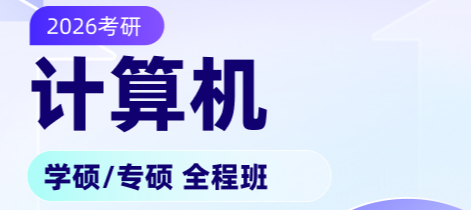1998-2022 ChinaKaoyan.com Network Studio. All Rights Reserved. 滬ICP備12018245號
2017考研趣味閱讀:經常走神?說明你太聰明了
Those who find themselves easily distracted at work may be intellectually superior to their colleagues, according to research.
研究發現,在工作中易被分散注意力的人可能比他們的同事智商更高。
Intelligent workers may have difficulty concentrating due to the vast number of clever ideas popping into their gifted brains.
高智商的人很難集中注意力,是因為他們總能靈光一閃,想出許多絕妙的主意。
Bostjan Ljubic, vice president of Steelcase, a workplace solutions company that analysed the findings of neuroscientists and cognitive researchers, said: “Employers are always on the lookout for the brightest people available, however the difficulty to withstand multiple tasks and distractions in the office affects smart people in the same way as everyone else, if not more.”
斯迪凱斯公司通過對神經科學家和認知研究者的調研結果進行分析,為企業提供人力管理解決方案。斯迪凱斯副總裁博斯揚·柳比奇說:“雇主們總是在尋找最聰明的人。然而,同其他人一樣,聰明人在面對多重任務時也會無從下手,而且在容易走神這件事上,聰明人跟普通人差不多,甚至不如普通人。”
The smartest individuals may find it more difficult to decide which ideas to prioritise with distraction leading to, what psychiatrist Dr Ned Hallowell cites as, “a feeling of inadequacy and inability to deal with the workload as a whole,” the Telegraphreports.
英國《每日電訊報》報道稱,聰明人不容易分清事務的輕重緩急。引用精神病學博士內德·哈洛韋爾的話說就是:這是因為“注意力不集中導致他們無法從全局的角度考慮事情,或者考慮的不夠充分。”
He added, the smartest brains can ultimately fall short of their own expected potential, as well as failing to live up to their employer's hopes.
他補充道,最聰明的腦瓜可能最終卻并不能充分發揮它的潛力,達不到雇主原先的期望。
Nearly half of more than 10,000 workers, surveyed in 17 countries, said they struggled to concentrate in the office, according to a wellbeing study by Steelcase.
斯迪凱斯的幸福研究涵蓋了17個國家,共有一萬多人接受調查,其中有近一半的人都表示難以集中注意力工作。
Increased access to technology has been cited as a possible reason for this lack of focus.
影響注意力集中的可能因素之一是科技設備的頻繁使用。
Research from GlobalWebIndex, cited by Steelcase, says the average time spent on mobile devices has increased by 200 per cent since 2012; while the average smartphone user in the UK checks their phone 221 times every day and the average office worker checks their email around 30 times an hour.
斯迪凱斯引用“全球網絡指數”的研究稱,目前人們在移動設備上平均花費的時間比2012年增長了200%;在英國,人們平均每天看手機221次,白領平均每小時查看郵件30次。
The University of California suggest that, ultimately, the average office worker is interrupted or distracted every three minutes.
加利福尼亞大學的研究發現,總的來說,白領平均每三分鐘就要走一次神。
Mr Ljubic said: “The ways in which we work are changing more rapidly than ever before and the brain is being subjected to stresses and distractions which can lead to overload and statistics show that distractions in the workplace are on the rise.”
柳比奇說:“我們的工作方式正在不斷變化,變化頻率比以前快多了。大腦易于焦慮、走神,由此導致腦部超負荷運轉。數據顯示,無法專心工作的人的數量正在上升。”
來源未注明“中國考研網\考研信息網”的資訊、文章等均為轉載,本網站轉載出于傳遞更多信息之目的,并不意味著贊同其觀點或證實其內容的真實性,如涉及版權問題,請聯系本站管理員予以更改或刪除。如其他媒體、網站或個人從本網站下載使用,必須保留本網站注明的"稿件來源",并自負版權等法律責任。
來源注明“中國考研網”的文章,若需轉載請聯系管理員獲得相應許可。
聯系方式:chinakaoyankefu@163.com
- 2026考研英語全程班 寒假班
- 權威高配師資親授技巧,教研千錘百煉科學提分。直錄播課相結合精講互動二合一,專業團隊精細化作文批改。講練結合,隨學隨練穩步提升。支持試聽~
- 主講團隊:王江濤、譚劍波、董仲蠡、許聰杰、陳志超、潘赟、鄭艷彤、易熙人

掃碼關注
了解考研最新消息












